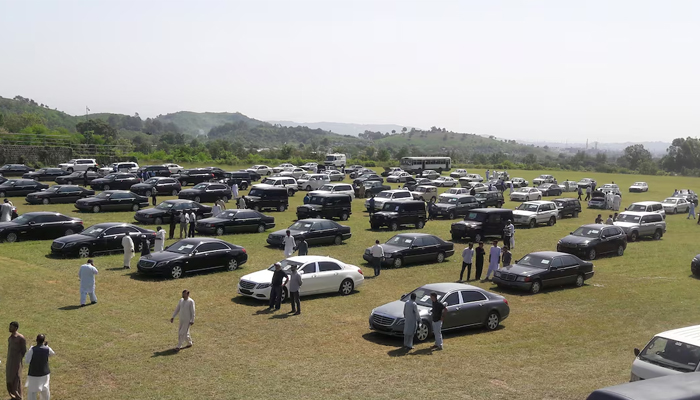
As the highly anticipated budget for FY26 is currently announced, Finance Minister Muhammad Aurangzeb outlined the government's vision for Pakistan's economic future.
Under Pakistan's budget 2025-26, the federal minister introduced a series of changes that would inevitably affect Pakistan’s automobile industry.
The finance minister announced the “Energy Vehicle Policy,” which is aimed at promoting sustainable and efficient energy use for transportation.
This policy seeks to encourage the development and integration of advanced vehicle technology to reduce emissions and enhance overall environmental well-being.
Federal budget 2025 Pakistan
Continuous evaluation and updates will be necessary to ensure its effective implementation. Currently, small cars with an engine capacity of up to 850cc enjoy a reduced sales tax rate of 10% to 12.5%.
However, the government is looking to streamline taxation by eliminating this exemption and bringing these vehicles under the standard 18% sales tax bracket.
On the other hand, the finance minister also announced a 2.5% carbon levy and a hike in the petroleum levy from Rs78 to Rs100 per litre, in a bid to generate Rs1,300bn.
Taxes on cars and EVs
According to Pakistan's budget 2025-26, a uniform sales tax rate of 18% is announced to be imposed on small vehicles up to 850cc, including those previously taxed at a lower rate.
This move aims to bring consistency in the sales tax structure for petrol, diesel, and hybrid vehicles.
In a major crackdown on unregistered businesses, the government has decided to impose severe penalties to ensure compliance.
- Freezing bank accounts of unregistered businesses
- Banning the transfer of property
- Sealing business premises and confiscating goods in cases of serious offenses
It is worth noting that the government's strategy aims to lower the average import tariff to below 6% by 2030, while also boosting competition in the domestic auto market.















